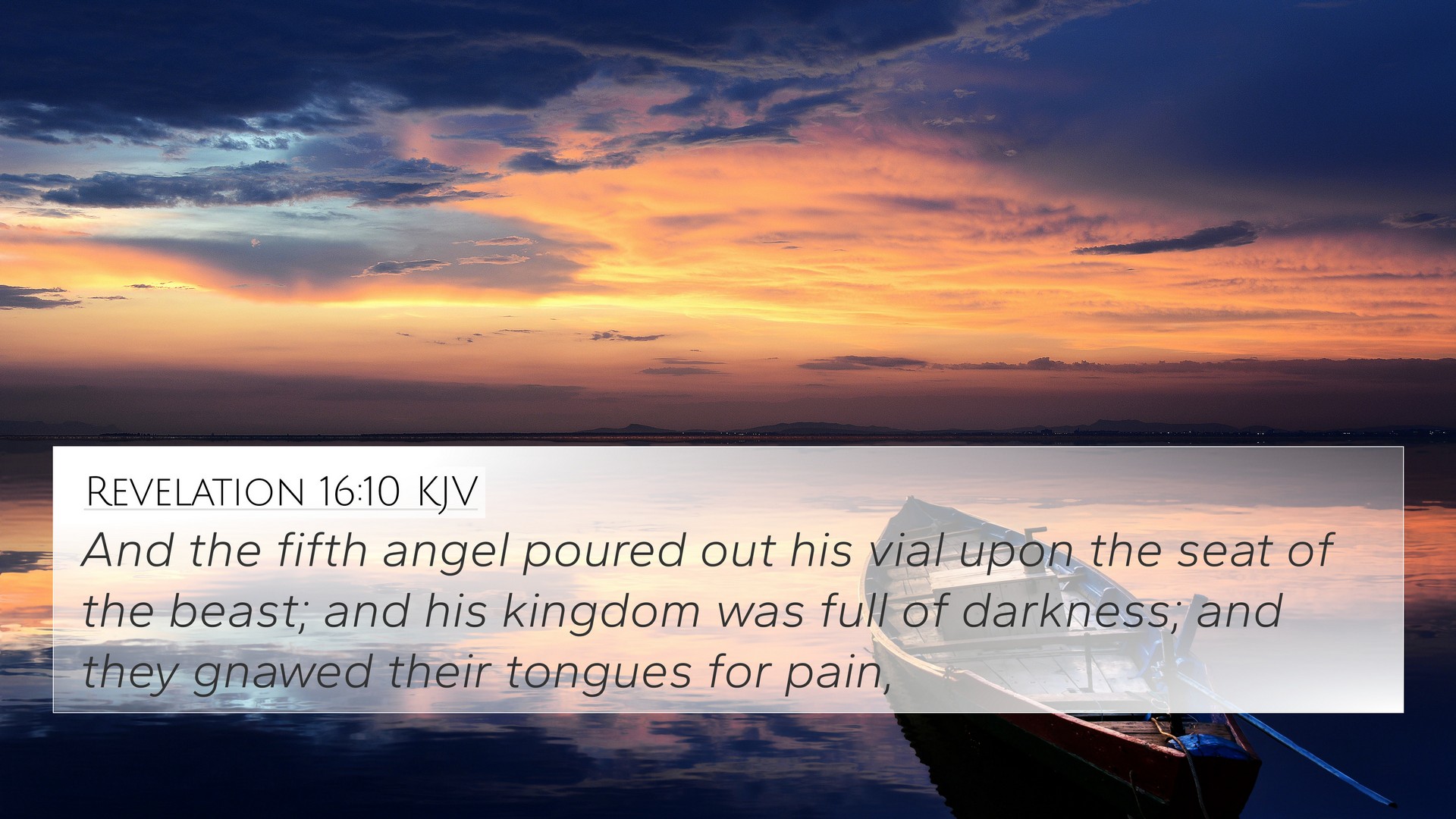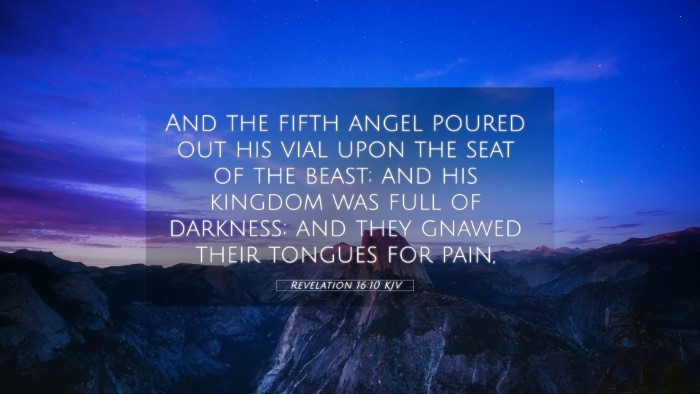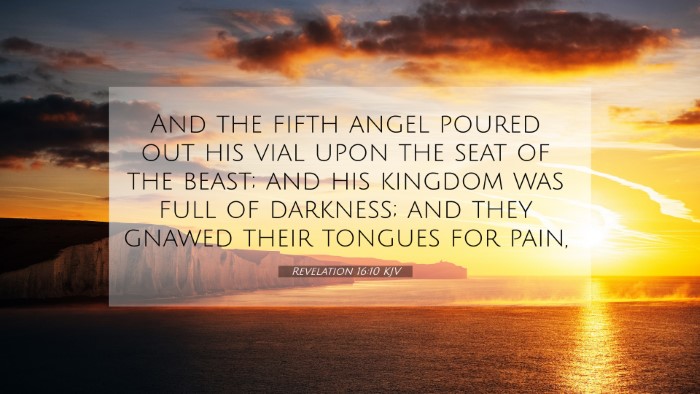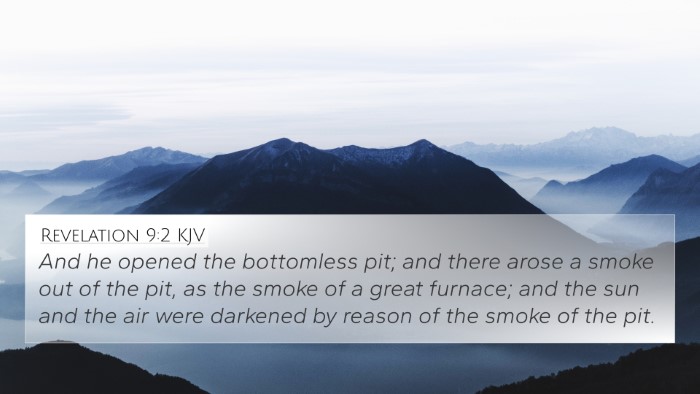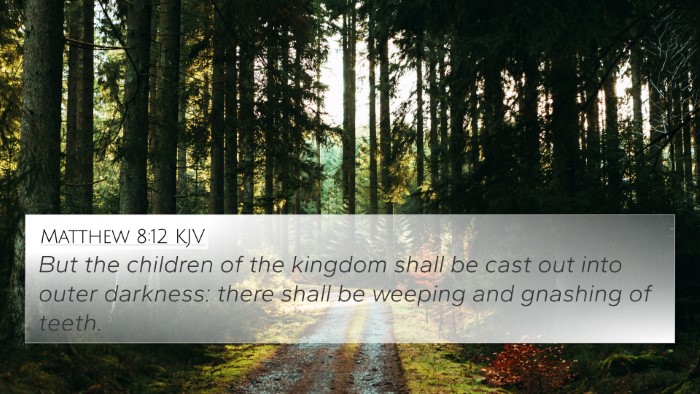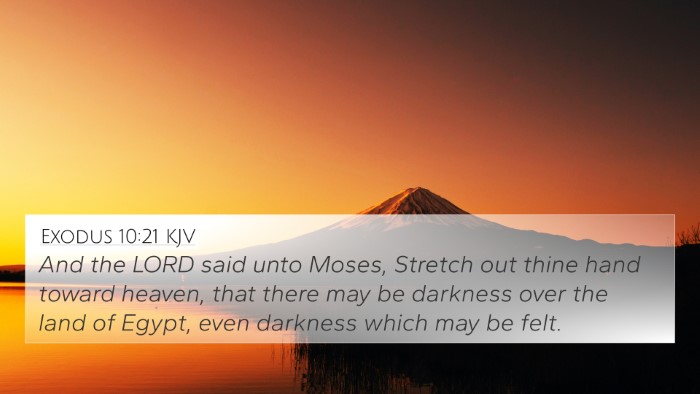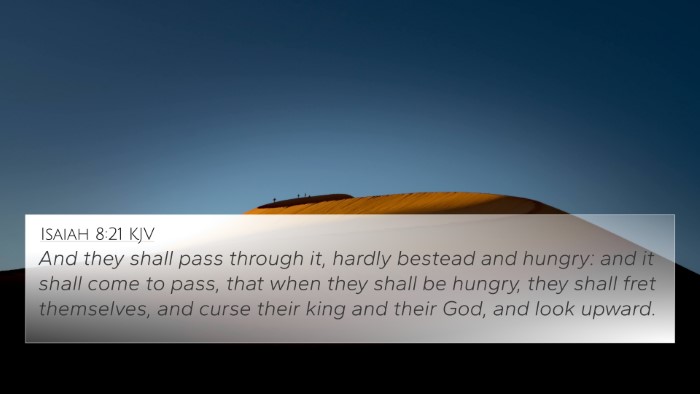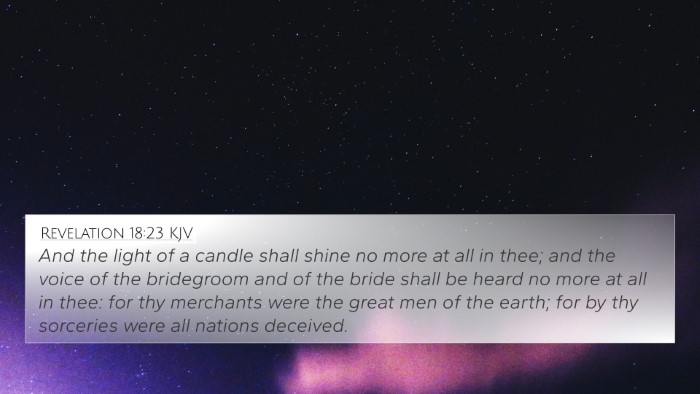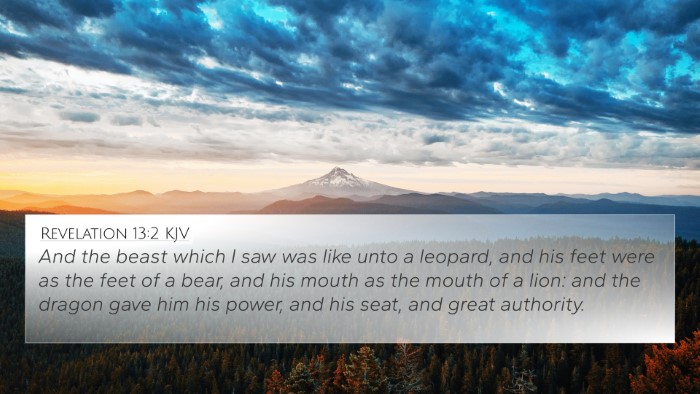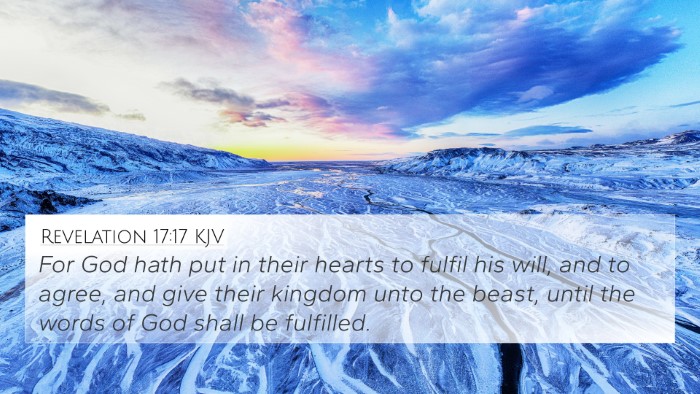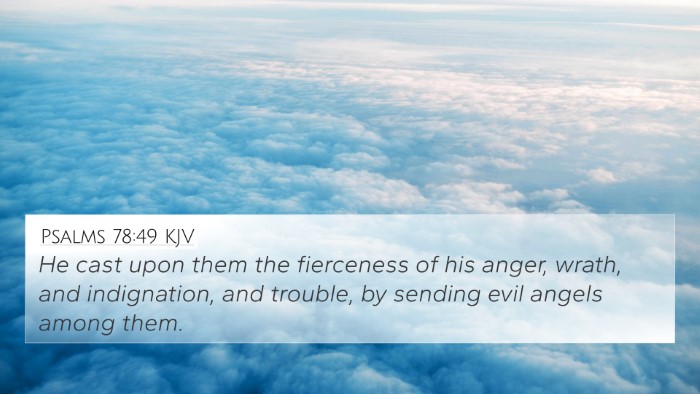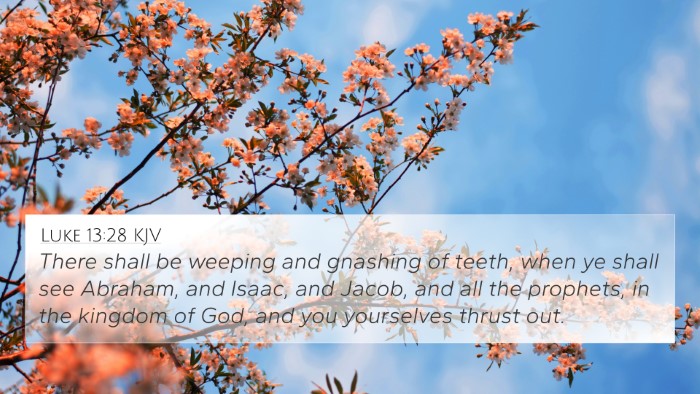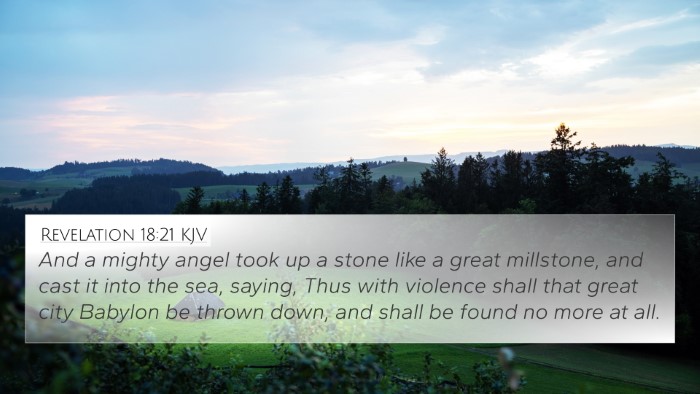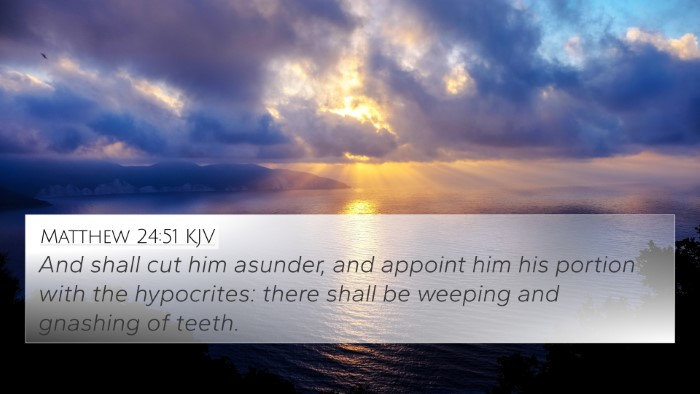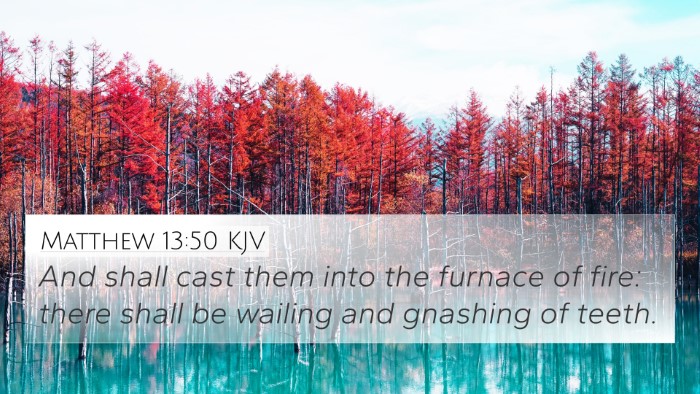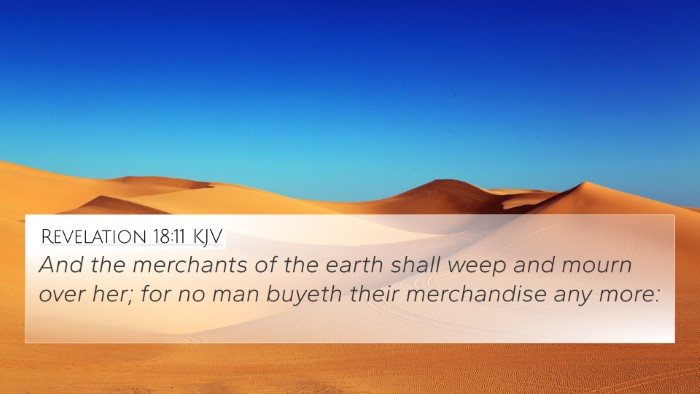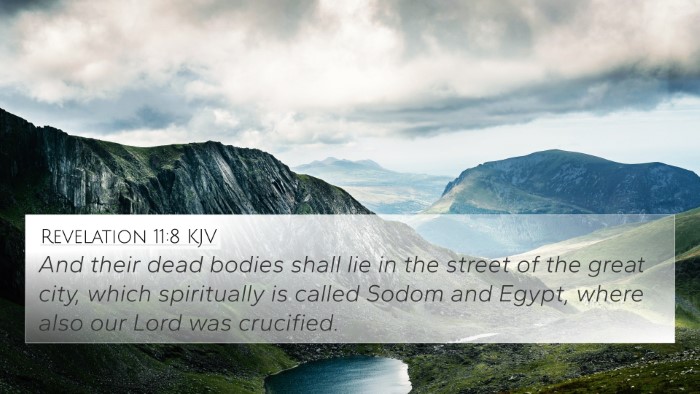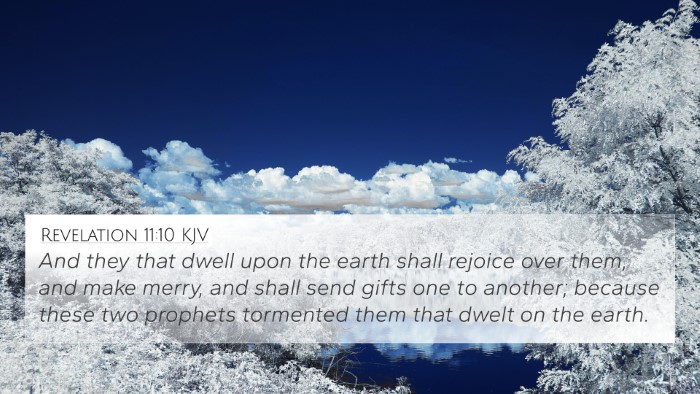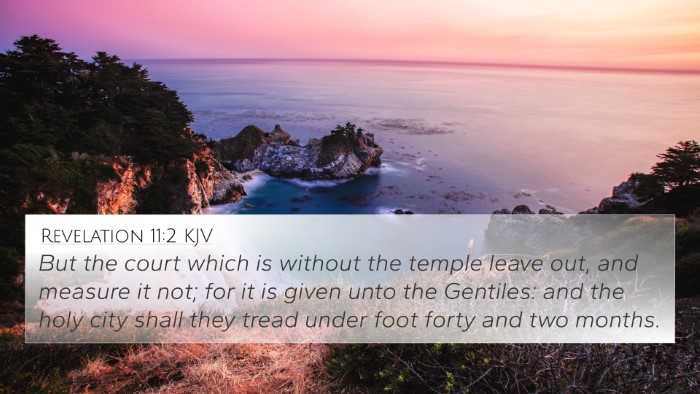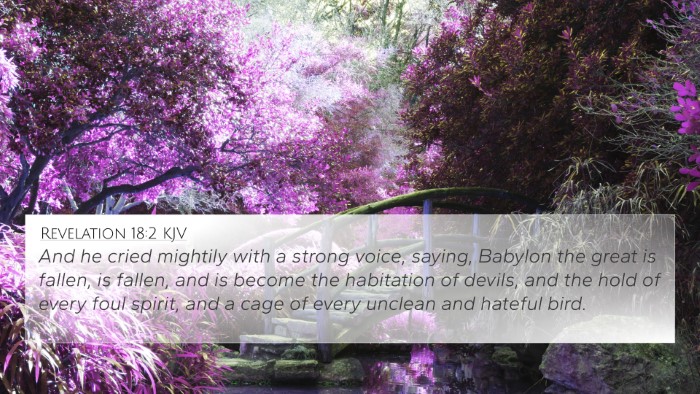Understanding Revelation 16:10
Revelation 16:10 reads: "And the fifth angel poured out his vial upon the seat of the beast; and his kingdom was full of darkness; and they gnawed their tongues for pain." This verse is part of the series of judgments in the Book of Revelation and particularly references the consequences of rebellion against God. Below, we explore the profound meanings, implications, and connections of this verse through various public domain commentaries.
Meaning and Explanation
This verse represents the fifth Bowl Judgment, where darkness symbolizes God's judgment against the kingdom of the beast—an embodiment of opposition to divine authority. Several commentaries highlight the dimensions of anguish and suffering experienced by those who are subjected to this judgment.
Matthew Henry's Commentary
Matthew Henry emphasizes the direct relationship between this judgment and the spiritual blindness that results from rejecting God. He interprets the "seat of the beast" as not just a physical location but a metaphor representing the influence and power of evil in the world. The intense darkness is a vivid reminder of God’s displeasure, akin to the plague of darkness in Egypt (Exodus 10:21-23), showcasing that the absence of God’s light leads to despair and agony.
Albert Barnes' Notes
Albert Barnes notes that the "kingdom was full of darkness" indicates the complete removal of divine grace and truth. The gnawing of tongues symbolizes a deep-seated frustration and torment due to the awareness of their sin and impending judgment. His analysis points to cross-references with other scriptures that demonstrate the theme of divine retribution, particularly emphasizing that this judgment serves as a wake-up call to individuals caught in the beast’s system.
Adam Clarke's Commentary
Adam Clarke adds that the punishment corresponds to the sins of the people, reflecting a poetic justice. The darkness serves as a physical and spiritual symbol of the suffering inflicted on those who cling to the kingdom of the beast. He draws parallels with biblical themes of judgment from the Hebrew Scriptures, where darkness often signified judgment and despair.
Cross References
This powerful verse connects to various other scriptures, underscoring its theme of judgment and suffering. Key cross-references include:
- Exodus 10:21-23: The darkness over Egypt symbolizes God's judgment.
- Lamentations 3:2: Illustrates walking in darkness due to God’s wrath.
- Matthew 8:12: "Outer darkness" speaks of separation from God’s presence.
- 2 Thessalonians 1:9: Punishment for not knowing God & rebellion.
- Revelation 9:1: A previous mention of darkness related to judgment.
- Isaiah 60:2: Prophecy concerning darkness covering the earth.
- John 3:19-20: Darkness associated with evil and avoidance of the truth.
Thematic Connections
Revelation 16:10 serves as a microcosm of the overarching motifs of the Book of Revelation. It invites readers to consider the broader implications of divine judgment, the nature of evil, and the ultimate victory of God over adversarial forces. The connections between this and other biblical texts highlight the recurring themes of judgment, the reality of suffering, as well as God’s sovereignty.
Conclusion
Revelation 16:10 encapsulates the essence of divine judgment against evil. By linking this verse with other biblical texts through cross-referencing, we gain a deeper understanding of God's justice and the eternal consequences of sin. This comprehensive analysis formed through public domain commentaries provides rich insights for those exploring biblical themes, offering a clearer perspective on connecting scriptures.
Further Study
For those interested in a deeper examination of connecting texts, utilizing tools such as a Bible concordance or Bible cross-reference guide can enhance understanding. Engaging in a cross-reference Bible study may offer additional insight into inter-biblical dialogue, revealing how interconnected the scriptures truly are.
